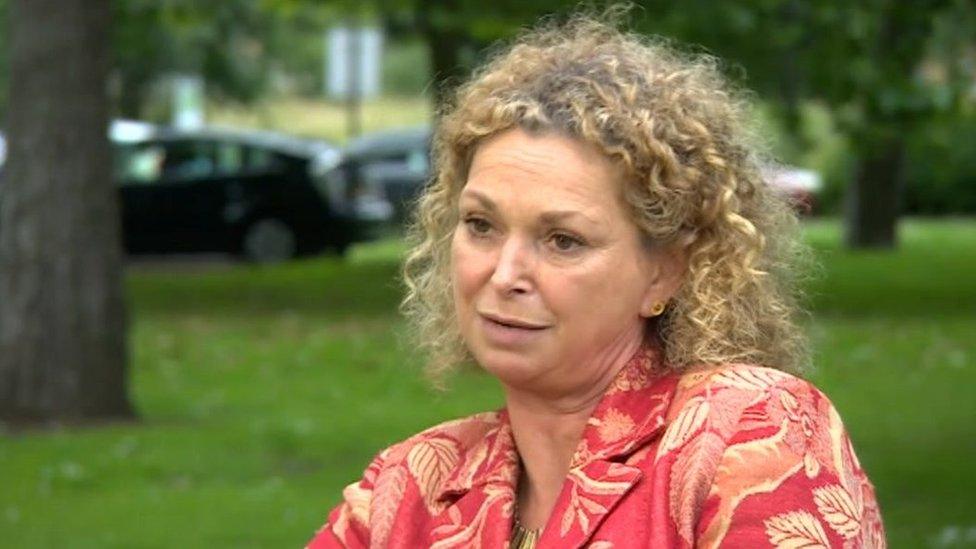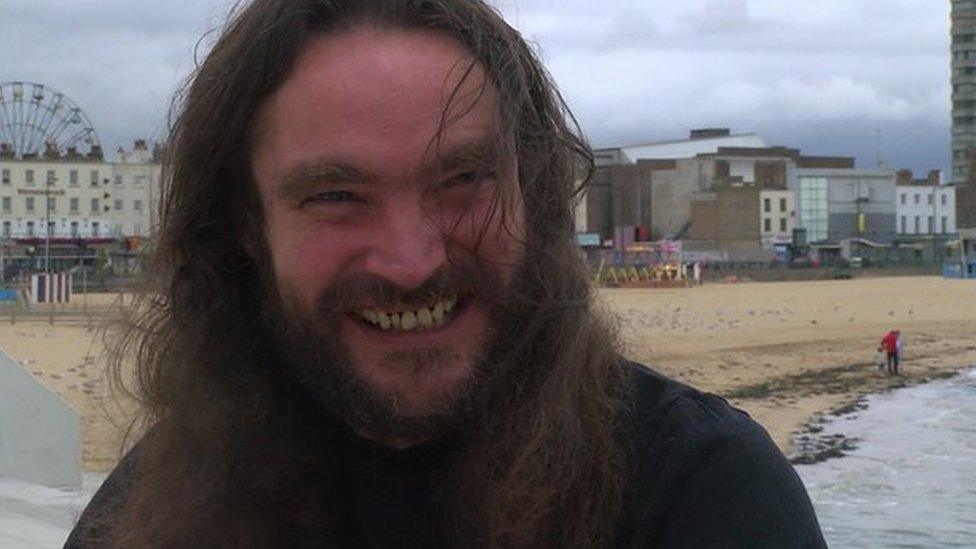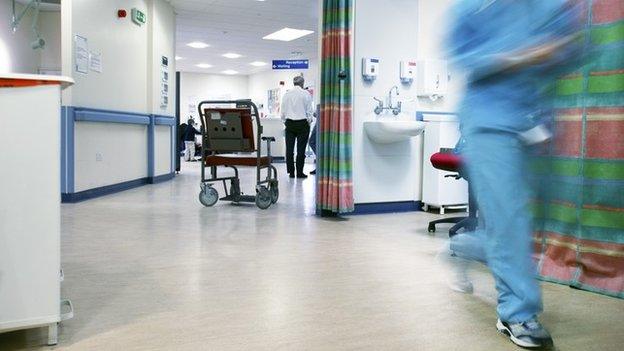Kent NHS mental health boss: Changes 'vital' to care
- Published

Kent's new mental health boss said she was passionate about change
The new boss of Kent's mental health trust has said she is passionate about preventing patients being sent out of the county to get care.
In 2014, Kent was named as among the worst-affected areas for patients being sent away for treatment.
Kent and Medway NHS and Social Care Partnership's new chief executive Helen Greatorex said fast changes were vital.
She said the county had the expertise, teams and facilities to keep people closer to home.
Last year, Margate patient, Daniel Gillan, described being first to sent to Somerset and then Manchester, journeys of 226 and 281 miles.
He said the distance meant neither family nor friends could visit him and he didn't know where he was - he only knew he was "a long, long way from home" because it took so long to get there.

Daniel Gillan was sent to a hospital for treatment 226 miles away
Ms Greatorex said: "It's an absolute passion of mine that we don't send people out of county unless it's an absolutely exceptional case.
"We have the expertise, the teams, and the facilities to look after them locally and we ought to keep people where they belong, as close to home as possible."
'Increased demand'
She added: "As a patient, I don't want to be bumped round the system, I don't want to have to think about how I get in and where I need to go.
"I want to just make one contact and then for it to happen. That's what the whole system is now focusing on doing. How important is it to do it quickly? It's vital, really vital, but we have to do it in a sustainable way."
Ms Greatorex said the trust would look at each patient currently out-of-area to make sure there was a plan for their return to the right place, which might be home or a local ward.
She said the trust would open 16 new beds this autumn to provide extra capacity but the trust was clear patients wanted to be in hospital for as little time as possible.
She said demand had increased but there were smarter ways to work including providing a single point of contact, working more closely with acute trusts and the wider NHS, and providing strong, patient-centred community teams.
- Published15 July 2015

- Published6 May 2014
